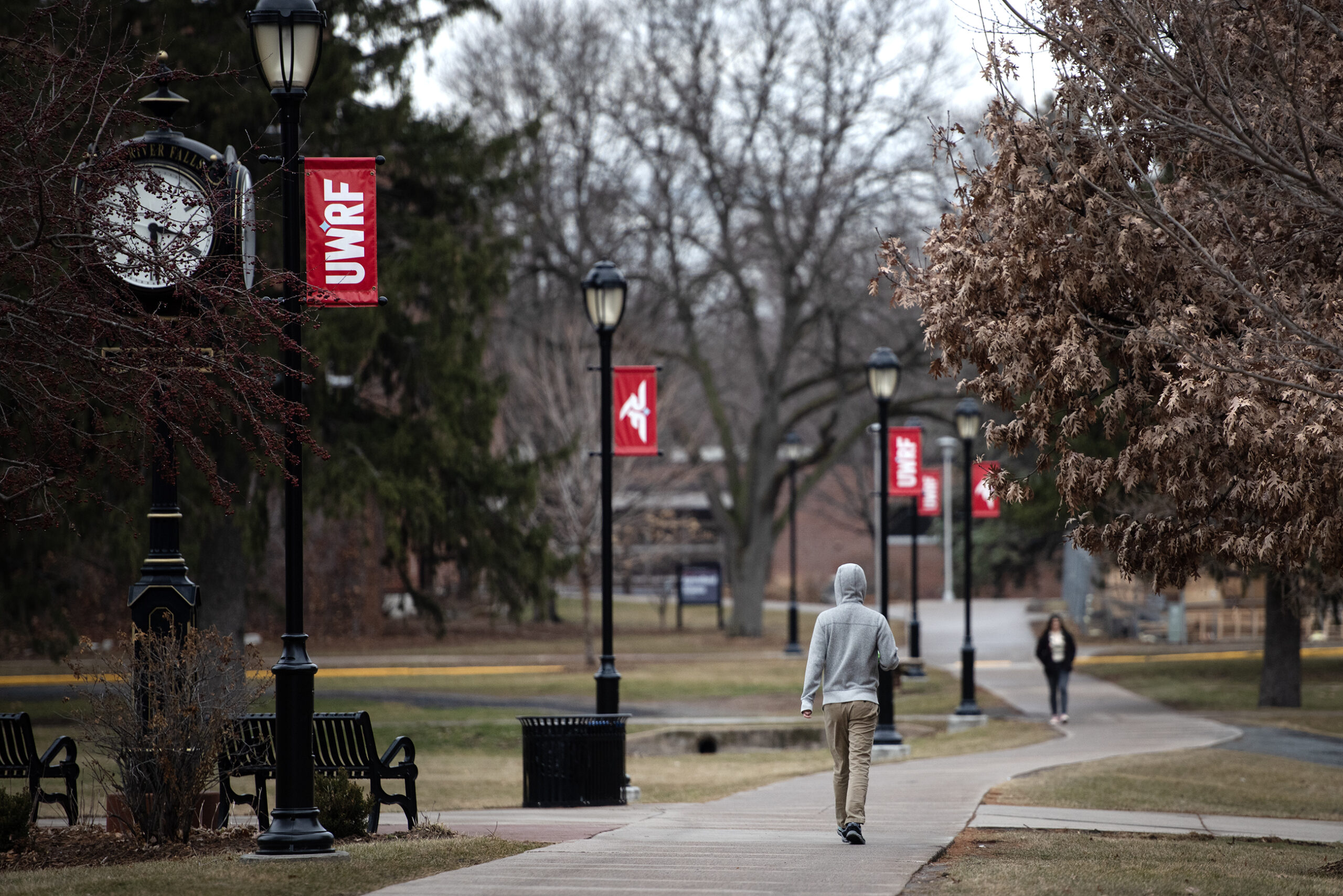A growing number of students in the University of Wisconsin System say they are struggling with anxiety and depression. System leaders say counseling services have increased on campuses, but haven’t kept pace with demand.
A presentation made to the UW Board of Regents Thursday showed more than half of students attending UW System campuses rated their behavioral health as below average or poor. And over the last eight years there’s been a 55 percent increase in students seeking counseling services on campuses.
The presentation was made by Sandra Scott, UW-Stout dean of students, and John Achter, UW-Stout’s associate dean of students, who is also a licensed psychologist.
News with a little more humanity
WPR’s “Wisconsin Today” newsletter keeps you connected to the state you love without feeling overwhelmed. No paywall. No agenda. No corporate filter.
Scott said less stigma and earlier childhood diagnosis of mental health issues are part of the reason for an increase in students seeking counseling services. She also said most incoming freshman have grown up after the Sept. 11, 2001 terrorist attacks.
“So their perception of safety is different than others,” Scott said. “Most of us haven’t had to grow up wondering if the kid sitting next to us in chemistry is going to kill us. We haven’t had to think about those things.”
She also mentioned that students today have more worries about college debt than past generations.
Scott said the ability of university staff to identify and offer assistance to students who may be facing mental health issues is critical to their success and that of the campus.
“I think we know that now, and what happens when we don’t invest? What happens is we lose those students?” she said.
But she said responding to increased mental health demands a comprehensive approach beyond funding.
“We can’t staff our way out of this issue,” Scott said. “None of us are here to say that today. We also can’t policy ourselves out of this issue. It’s a complex problem that requires complex solutions, but resources matter.”
Achter provided data to the regents that showed campuses increased the number of counseling staff statewide by 19 percent since 2010, much of that at UW-Madison. But, he said student demand for counseling services increased by 55 percent in the same period.
“We’re not able to meet their needs in the same way that we used to be able to,” Achter said. “So, this results in poorer access, longer wait times and less service, more waits between appointments for instance.”
Survey results from Wisconsin students participating in the National College Health Assessment (NCHA) showed 23 percent of students reported being diagnosed or treated for depression in 2015, while 27 percent reported being diagnosed or treated for anxiety. Achter said in the last three years, 41 percent of students surveyed in the NCHA reported being so depressed they had trouble functioning.
Presenters told regents some campuses in rural areas of Wisconsin have unique challenges in addressing mental health because of a lack of providers off campus in their communities.
UW System President Ray Cross acknowledged that and said it might be an area where campuses can partner with communities to address the issue.
“The problems of the state of Wisconsin are our problems too,” Cross said. “What is our role in not only reducing these problems on our campuses but in our communities?”
The end of the presentation featured students who had struggled with mental health while enrolled at UW campuses. UW-Madison student Manasi Mohan said she would like to see the university invest in a more culturally diverse group of counseling staff.
“So what we need at UW-Madison is a provider base that reflects our increasing diversity,” Mohan said. “All students need mental health providers who look like them, who they feel comfortable sharing their experiences with and talking with. So in that vein, students of color need providers of color who understand our cultures and who have dealt with systemic racial issues and know how to cope with them.”
A press release from the UW System after the regents meeting said that a 2017-18 UW System Counseling Impact Assessment Program found 22 percent of students thought about leaving school prior to counseling and 77 percent of those who considered leaving said counseling helped them stay. The release also said, “In addition to increased staffing, other suggested tactics to help students include increased training on how to recognize and treat behavioral health issues, and greater partnership with the K-12 system.”
Editor’s note: The original version of this story listed Sandra Scott and John Achter’s titles incorrectly. This has been fixed.
Wisconsin Public Radio, © Copyright 2026, Board of Regents of the University of Wisconsin System and Wisconsin Educational Communications Board.





